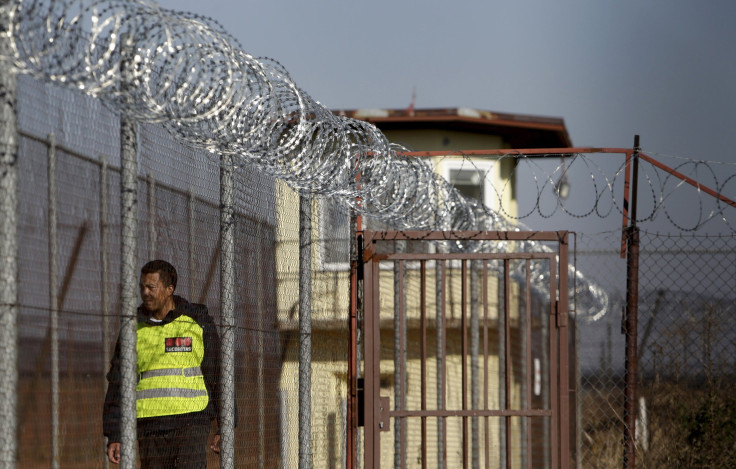UN Criticizes Czech Detentions, Strip Searches Of Refugees

By Tom Miles and Jan Lopatka
GENEVA/PRAGUE (Reuters) -- U.N. human rights chief Zeid Ra'ad al-Hussein accused the Czech Republic on Thursday of committing systematic human rights violations by detaining refugees for up to 90 days, strip-searching them for money to pay for their own detention.
Human rights violations appeared to be "an integral part" of a Czech government policy designed to deter migrants and refugees from entering the country or staying there, he said in a statement.
The Czech Republic lies to the north of the main migration routes taking refugees through the Balkans to Germany. It has seen only a fraction of the hundreds of thousands passing through Hungary and Austria on their flight from war or poverty.
Those who come through the Czech Republic have often been detained, some for weeks if authorities do not manage to return them to the country they arrived from. Very few claim asylum in the Czech Republic. Many continue their journey to Germany upon release.
The criticism follows reports by the Czech public human rights officer and multiple independent lawyers and non-governmental organizations working with refugees.
The Prague government says the detentions are legal. It says it is trying to improve conditions in existing centers and opening new ones. Last week, there were 533 people detained.
"What we fundamentally disagree with is the assertion that the Czech government intentionally and systematically violates human rights of migrants," Interior Minister Milan Chovanec said in a statement.
Zeid was welcome to visit any Czech facility for detention of foreigners to learn of the situation in person. "We will be happy to organize such a visit," Chovanec said.
The Czechs voted last month in a small minority against quotas to distribute asylum seekers across the European Union, putting them on collision course with EU partners.
Zeid expressed alarm that the country's detention policy was accompanied by increasingly xenophobic public statements, including "Islamophobic" statements by President Milos Zeman.
Zeman, who does not have much policy-making power under the Czech legal system but is the head of state, rejected the criticism. His spokesman said: "The president has long warned of the threat of Islamic fundamentalism. He stands by his opinion and he will not change it under pressure from abroad."
The U.N. refugee agency UNHCR says the vast majority of those making the journey from Turkey through Greece, often hoping to reach Germany, are refugees rather than economic migrants, and have a right to protection and asylum.
Zeman has warned migrants would impose sharia, stoning women to death for adultery and chopping thieves' hands off.
"We will lose women's beauty because they will be covered head to toe in burqas, with only a fabric net over the face," the CTK news agency quoted him as saying last week.
Zeman's views reflect those of Hungarian Prime Minister Viktor Orban, who has vowed to protect Christian values by fighting to stem immigration from Muslim countries.
The center-left Czech government has not used similar rhetoric to that of the 71-year-old president, but remains alone in detaining refugees for so long - routinely for 40 days and sometimes for 90, Zeid said.
"International law is quite clear that immigration detention must be strictly a measure of last resort," he said. Detaining children "on the sole basis of their migration status, or that of their parents, is a violation, is never in their best interests, and is not justifiable," he said.
Courts had released people who had challenged their detention, but most did not know their rights and were unable to exercise them, partly because their mobile phones were taken away when they were detained, Zeid said.
They were often destitute on their release after being strip-searched for money to pay the daily cost of 250 crowns ($10.46) for their detention, often in poor conditions, he said.
(Additional reporting by Robert Muller; Editing by Richard Balmforth)
© Copyright Thomson Reuters 2024. All rights reserved.











